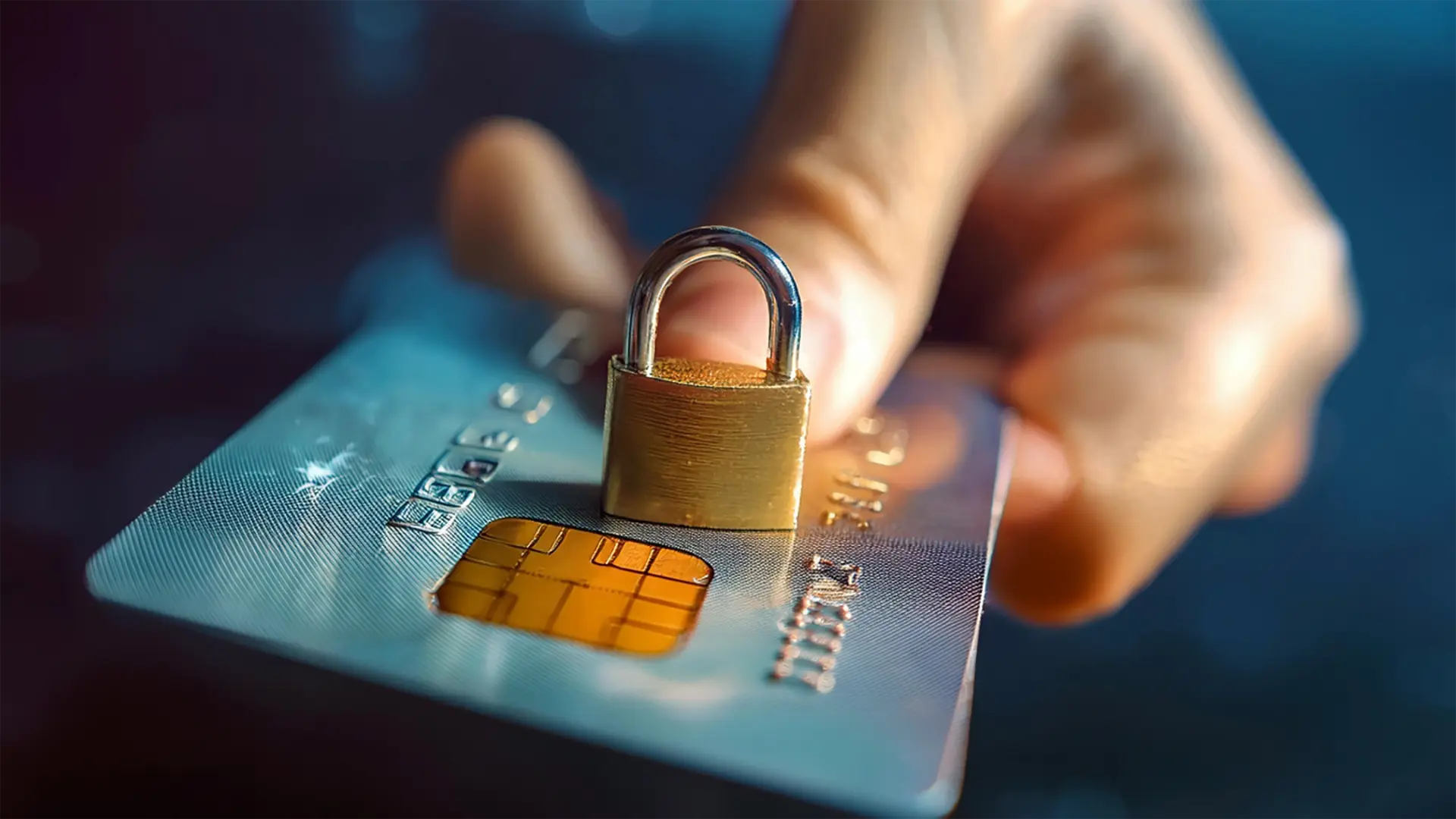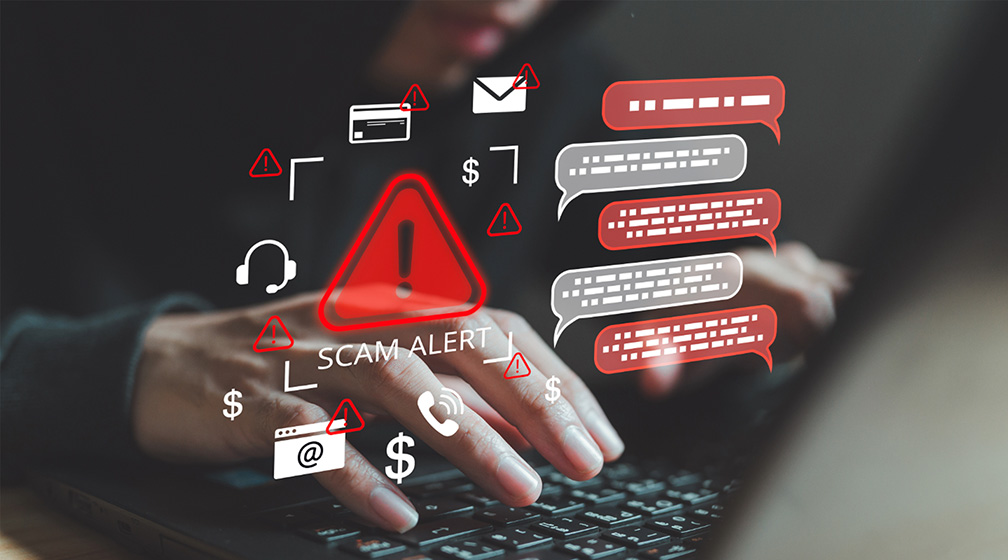
Payment apps offer a convenient way to make payments and transfer money to other people, all from your mobile phone. But the popularity of payment apps has also led to a rise in payment app scams – where criminals try to use the technology to scam users out of their money.
To keep yourself safe on payment apps, you should know the warning signs of scams and take proactive steps to avoid fraud. If you do get scammed, responding quickly can help you recover your funds or prevent further damage.
How Payment App Scams Work
Payment app scams can happen with any app, including popular options like Cash App, PayPal, Venmo, and Zelle.
While payment apps offer convenience, they don’t have the same consumer protections that you get with your bank account or credit card. Criminals know this and often use payment apps since they are less likely to be tracked down or face consequences when using those platforms.
Knowing how payment app scams work can provide you with an initial level of defense against fraud.
Common Types of Payment App Scams
Data from the FTC shows that consumers lost $391.0 million to fraud through payment apps or services in 2024, an 86.3% increase from the 2023 total of $209.9 million.
So far, payment app scams are on the rise in 2025. The same report from the FTC shows a 60.9% increase in fraud committed through payment apps in Q1 of 2025 compared to Q1 in 2024.
Understanding common payment app scams is the first step to avoiding becoming a victim. Here are some of the most common types of payment app scams:
Accidental Payment Scams
In an accidental payment scam, a stranger sends an unexpected payment to your app. They message you and explain that they paid you by mistake and need you to return the money.
In reality, the scammer used someone else’s stolen credit card or bank info to pay you. Once you “return” the accidental payment, the scammer will pocket the money. And if the owner of the stolen card or bank account disputes the payment, the original transaction could get reversed and funds could get pulled out of your account.
Phishing Scams
With a phishing scam, you receive an email, text, or message from someone impersonating a legitimate organization. Their hidden goal is to trick you into providing personal information, clicking a malicious link, or downloading malware.
Often, scammers will send phishing emails that appear to be from your payment app company, asking you to reset your password because of a security breach or suspicious activity. But when you click the link in the email and enter your login details, a criminal is capturing your information at the other end or even downloading malware to your device that could capture more of your information.
⭐️ Related: Spam vs. Phishing: What’s the Difference?
Fake Sales and Purchases
When you’re browsing online marketplace sites like Facebook Marketplace or Craigslist, you need to watch out for fake sale scams. There are variations on this scam, but many of them involve the seller asking you to pay them in advance to reserve the item. In reality, they will pocket your money and ghost you.
Fake ticket scams are a common variation: someone will list in-demand concert or sports tickets online to get your money. But the tickets might be fake, or you may never receive any tickets at all.
Cash Flipping or Investment Scams
With a cash flipping or investment scam, you receive a message from someone posing as a financial or investment expert. They promise to use an app, business, or investment to flip the cash you send them and make you a quick buck – but they will actually keep the money you send.
The scammer may even try to reel you in by initially requesting a small amount of money, then sending you back a slightly larger sum in return. Once they’ve gained your trust, they’ll ask for a larger investment. Eventually, they’ll disappear with your funds.
💡 Learn More: How to Protect Yourself from Investment Fraud
Romance Scams
Romance scammers troll dating apps and websites to scam real people looking for romantic relationships. They pretend to be interested in you, but they will ask you to send them money via a payment app – for travel expenses to come visit you, for medical bills, or for some other reason. They will keep the money you send them and possibly keep stringing you along to milk the scam as far as it can go.
⭐️ Related: How to Help Protect Adults from Romance Scams
Charity Scams
Charity scams try to take advantage of your good nature by soliciting donations for a worthy cause, often in the wake of a recent disaster or current event. You make a donation to the fake charity via a payment app, but the funds never end up helping anyone but the scammer.
📚 Learn More: Donating to Charity? Follow These Best Practices to Avoid Fraud
How to Protect Yourself from Payment App Scams
There are many ways to protect yourself from payment app scams without having to give up payment apps altogether. Here are some commonsense ways to avoid scams:
- Don’t send money to strangers. Following this one simple rule can help you avoid a huge number of scams. Only send payments to people you actually know – and make sure to verify their payment credentials or user IDs in person. If you receive a message claiming to be from a friend or relative who needs money, don’t just assume it’s legitimate.
- Don’t respond to unsolicited requests. If you get an unexpected message that appears to be from a legitimate person or organization, don’t automatically assume it’s real. Don’t follow any links or download any attachments. If you need to verify that a message is above board, don’t respond directly to the message. Instead, contact the person or organization through a legitimate channel – such as the customer service number listed on a company’s website.
- Monitor your account. Pay attention to the transactions in your payment app account. It’s a good idea to check your account on a monthly basis, even if you don’t get a statement in the mail or in your email.
- Protect your account. Use a strong, unique password for your payment app. Turn on multi-factor authentication (MFA) to add extra security and keep criminals out.
- Connect your payment app to a credit card. Credit cards have stronger consumer protections against fraud when compared to debit cards or bank accounts. Use a credit card as your connected form of payment.
What to Do If You’ve Been Scammed
If you fell victim to a payment app scam, you need to take action to stop fraud and, in some cases, recover your money. Here are the steps you may need to take:
- Report the fraud to the payment app. Immediately report fraud to the payment app company. They may or may not be able to recover your funds, but they can investigate the matter and possibly take action against the user who scammed you.
- How to report Zelle scams:
- Report the Zelle scam online here
- Call Zelle to report the scam at 1-844-428-8542
- How to report Cash App scams:
- Report the Cash App scam within the app
- Report the Cash App scam online through their Support page here
- Call Cash App Support at 1-800-969-1940
- How to report Venmo scams:
- Report Venmo scams through their support page here
- You can fill out a form to report the fraud, or use their chat feature
- Email Venmo’s support team at support@venmo.com
- Report Venmo scams through their support page here
- How to report PayPal scams:
- Report PayPal scams in the PayPal Security Center here
- Report suspicious PayPal activity, communications, or scam attempts by emailing phishing@paypal.com
- How to report Zelle scams:
- Notify your bank or credit card issuer. Review your financial accounts for fraudulent activity, especially with the account that is linked to your payment app. Dispute any unauthorized transactions.
- File a police report. You may want to report fraud to your local police, the Federal Trade Commission, and even the Internet Crime Complaint Center (IC3) run by the FBI. This can help you start the process of recovering from fraud, and you may need a copy of the fraud report in the future.
- Call IdentityIQ. If you have identity protection with IdentityIQ, you can call us to report fraud. Our team of fraud restoration experts can provide personalized support to report fraud, prevent further damage, and recover your identity so you can move on with your life. Members can contact our fraud restoration team through the member portal, or by calling us at 877-875-4347.
Staying Safe with Payment Apps
Payment apps provide a simple and convenient way to handle financial transactions, but they also create opportunities for criminals to scam unsuspecting users. It’s important to watch out for scams, avoid sending money to strangers, and be wary of unsolicited messages.
You can also protect your account with strong passwords and security features like MFA. By staying informed and exercising caution, you can prevent scams from occurring and keep your money safe.
How IdentityIQ Can Help
Payment apps will always be popular targets for criminals. No matter what type of scam you fall victim to, the financial and emotional fallout can be devastating. IdentityIQ can help keep you safe from fraud and identity theft by providing you practical tools that increase your online security and watch out for signs of fraud.
And with a dedicated fraud restoration team, we can help you recover your identity and report fraud if you fall victim to a scam or your personal information is compromised. Don’t wait until fraud occurs to protect yourself – sign up with IdentityIQ to help ensure you stay safe with online payments and beyond.







